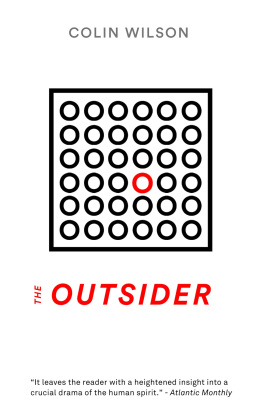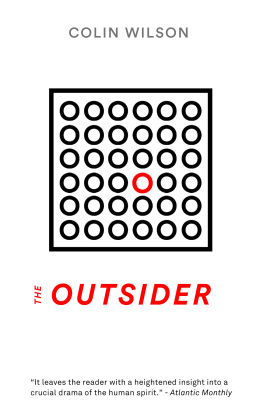
SONGS IN THE KEY OFZ

Library of Congress Cataloging-in-Publication Data
Chusid, Irwin.
Songs in the key of Z : the curious world of outsider music / IrwinChusid. p. cm.
Includes bibliographical references, discography, and index.
ISBN 1-55652-372-6
1. Musicians-Biography. 2. Popular musicHistory and criticism. I.Title. ML394.C56 2000 781.64'09-dc21 99-057640
Interior design: Lindgren/Fuller Design
Cover design: Greg Carter
2000 by Irwin Chusid All rights reserved First edition
Published by A Cappella Books, an imprint of Chicago Review Press,Incorporated
814 North Franklin Street Chicago, Illinois 6o6io
ISBN 1-55652-372-6
Printed in the United States
5 4 3 2 1

Dedicated to Mencken, Mary, andMr. Mack


CONTENTS

INTRODUCTION
"Folklore is the arts of thepeople before they find out there is any such thing as art."
-ZORA NEALE HURSTON
 enius?Forget it. Talent? Beside the point.
enius?Forget it. Talent? Beside the point.
Welcome to the curious universe of"outsider music," a mutant strain of twisted sonic art that's sowrongit's right.
Duke Ellington once said, "Ifit sounds good, it is good."
Well, sometimes if it sounds bad,it's even better.
Most people recognize"good" music when they hear it. Music that succeeds in the broadermarketcall it "popular"adheres to commonly accepted standards ofmelody, harmony, and tonal logic. Rhythm is fairly consistent, and lyrics tendto addressprofoundly or vapidlyour shared culture and experiences.
Occasionally popular music cleverlychallenges or plays footloose with convention. But for the most part, basicformulas remain intact. There is right, and there is wrong, andproducers, record execs, and radio programmers are paid obscene sums todetermine what the market will accommodate. In an age of multitrack overdubbingand digital splicing, any performance miscue can be repaired. And thoughproducers can work with serendipitous mistakes, even make them soundintentional, most studio professionals prefer to re-take a bum note or blownchord until done correctly.
Now, imagine a musical universewhere such standards do not exist, where keys beyond G are explored with lan.This book is a pan-galactic map of crackpot and visionary music, where alltrails lead essentially one place: over the edge. Picture a musical subclassglimpsed through the lens of Diane Arbus.
This book is about artists who areinstinctively gifted with what might be termed "imperfect pitch."
Outsider music sometimes developsnaturally. In other cases, it could be the product of damaged DNA, psychoticseizures, or alien abduction. Perhaps medical malpractice, incarceration, orsimple drug-fry triggers its evolution. Maybe shrapnel in the head. Possessionby the devilor submission to Jesus. Chalk it up to communal upbringing or badbeer. There's no universal formula.
That's one characteristic that makesoutsider music so refreshing: its unpredictability.
Adventuresome musicians have beenknown to deliberatelyeven maliciouslyjettison traditional approaches toexpand the boundaries of music. Way beyond the parameters of pop stood renegadecomposer-theorist John Cage (1912-1992), considered by many the most avant ofall gardes. Cage studied under twelve-tone formulator Arnold Schoenberg, whoinsisted, "In order to write music, you must have a feeling for harmony."Cage lamented, "I had no feeling for harmony. [Schoenberg] then said thatI would always encounter an obstacle, that it would be as though I came to awall through which I could not pass. I said, 'In that case I will devote mylife to beating my head against that wall.'" Cage proceeded to create aunique body of work that remains among the most influential of the twentiethcenturyand not everyone calls it "music." But no one doubted that hewas in command of his mental faculties. Cage made a conscious choice to rebel,and regardless of the theoretical randomness of his aleatory (chance) music, hemaintained control over his work.
But there are countless"unintentional renegades," performers who lack Cage's overtself-consciousness about their art. As far as they're concerned, what they'redoing is "normal." And despite paltry incomes and dismal recordsales, they're happy to be in the same line of work as Celine Dion and AndrewLloyd Webber.
These artists populate the curiousuniverse of outsider music. Lucrative careers in show biz are largely beyondtheir grasp, yet these quirky characters are compelled to create music, andpublic indifference is no deterrent. They orbit beyond the databanks ofSoundScan and focus group surveys. They get little or no commercial radioexposure, their followings are limited, and they have roughly the samelikelihood of attaining mainstream success that a possum has of skitteringsafely across a six-lane freeway.
The average person hearingoutsider-type musicians for the first time might conclude that theirperformances are inept, or that these artists lack talent. Their vocals soundmelodically adrift; their rhythms stumble. They seem harmonically withoutanchor. Their instrumental proficiency may come across as laughably incompetent.
A common first reaction to theShaggs' landmark album Philosophy of the World is, "What were theythinking?" After witnessing a performance by the Legendary StardustCowboy, a club owner sneered, "That is the worst shit I've everheard in my life." And a radio station director once remarked that HarryPartch would "be a really good composer if only he'd compose regularmusic."
Such reactions presuppose that theseartists are attempting to meet conventional standards of musicianship, but arefailing miserably.
To appreciate outsider music,however, an accommodation is required on the part of the listener. The rewardsare ample: just when you think you've heard it all, outsider music revealsvistas you never imagined existed. Outsider music is created to entertain, and doesentertain at levels that exceed the indifference it might engender if itdisplayed greater technical ability and self-awareness. The "wronger"it is, particularly with lesser degrees of self-conscious intent, the closer itapproaches pure originality.
Millions of songs are written everydecade, most of which flawlessly comply with the rudiments. The bulk of suchwork is bloodless, soulless, and academic. Obeying rules is hardly a benchmarkof creativity, much less of that elusive quality we recognize as"genius." As some wag observed, "The angels love enthusiasm farmore than perfection."
Long before the world knew him asthe father of the Simpsons, Matt Groening was collecting weird sonicsand writing about them as a critic. "I'm less interested in virtuositythan I am in the passion with which an album is performed," he explained."That's why I love eccentrics like the Shaggs, Daniel Johnston, and LuieLuie."
Next page














 enius?Forget it. Talent? Beside the point.
enius?Forget it. Talent? Beside the point.